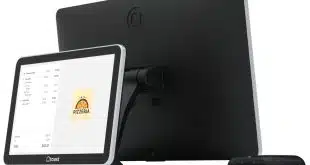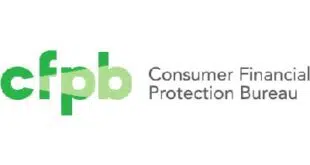Severe price compression in the merchant acquiring market drove together two major players and led to further consolidation in the merchant-processing business as Bank of America Corp. today announced it has acquired National Processing Inc.for $1.4 billion in cash. BofA says it will combine its Merchant Services unit with NPC and locate the merged entity in Louisville, Ky., where NPC is headquartered. The combined company would account for some $250 billion in credit and debit card transaction volume, enough to rank it second among merchant acquirers after the Chase Merchant Services LLC/Paymentech LP combination, which processes $358 billion annually. The deal is subject to regulatory approvals and the approval of NPC shareholders, and is expected to close in the fourth quarter. National City Corp., Cleveland, owns 83% of NPC. BofA is paying 28 times NPC's 2003 net income to buy the processor, which last year processed 4.3 billion merchant transactions carrying $177 billion in value at 700,000 merchant locations. The move, say some experts, is driven primarily by the need among merchant acquirers to consolidate to achieve economies of scale in a market in which larger merchants are increasingly driving down transaction pricing. Payments processing is a scale-driven business, with cost per transaction declining as more transactions are driven through data centers. “The way margins are going in this business, that's what everybody is looking at,” says Les E. Riedl, executive vice president at Speer & Associates Inc., an Atlanta consultancy. “There's significant price compression, so [processors] are managing costs down to what they'll be meeting in the marketplace.” He adds he's seeing pricing now for national merchants in the range of 2 cents to 3 cents per transaction, and others have said that new deals struck by Wal-Mart Stores Inc. with the card networks have pushed the chain's pricing below 2 cents. In its 10K filing for 2003, NPC refers to pricing pressure from national merchants as its prime business challenge. “The company is…currently experiencing increased pricing pressure in competing for new national merchants and retaining existing national merchants,” the document reads. “These factors may offset the company's future revenue and operating profits.” The filing says that as a result NPC would seek increased business from regional merchants offering higher margin potential. NPC has a network of some 1,100 independent sales organizations and agent banks it can rely on to expand its penetration among smaller merchants. Still, the company has not been able to grow fast enough to drive up earnings. Its net income has declined slightly over the past three years, from $52.7 million in 2001 to $51.1 million in 2002 and $48.8 million last year. This despite the fact transaction volume has climbed 23% since 2001 and dollar volume is up 13%. Some observers have pointed to NPC's airline clients?and the resulting exposure to chargebacks on tickets as the airline industry gets back on its feet?as a primary reason for National City's decision to sell the company. This, however, probably played a smaller role in the decision than the general compression in merchant pricing. NPC currently processes card transactions for two airlines, one of which, United Airlines Inc., is in Chapter 11. NPC is liable to refund ticket purchases when the carrier can't honor them. But the value of tickets purchased from the carriers and not yet flown was $786 million at year end 2003, according to the 10K filing, or just over 0.4% of overall volume. One airline contract expired in April, and the other is due to end in November 2005. NPC has said it would not renew these contracts. National City Bank has said it will concentrate on its core banking business, focusing in particular on expansion in the Chicago, St. Louis, Cincinnati, and northern Ohio markets. For its part, BofA plans to put Mark D. Pyke, NPC's current chief operating officer, in charge of the combined company. Pyke will report to G. Patrick Phillips, president of card services and e-commerce for Charlotte, N.C.-based BofA, which is already the nation's largest issuer of signature-based debit cards, its fourth-largest bank credit card issuer, and its largest ATM deployer.





